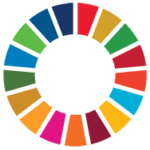Sustainable Curriculum
Providing a Sustainable Curriculum is one of the seven core principles of the University’s Climate Plan, which was approved by the University Council in November 2021.
It sets out our aim to enable all our students to have the opportunity to study, research, work and participate in sustainability as part of their studies.
Our Leeds Sustainable Curriculum framework will ensure that education for sustainable development becomes embedded within our teaching, and integrates with the University’s ambitious Education Strategy and Curriculum Redefined programme.
By providing our students with the knowledge and skills they need to have a positive impact in the world, our sustainable curriculum will enable them to contribute solutions in our local community and globally in an equitable and just way.
What is included in our Sustainable Curriculum?
The Leeds Sustainable Curriculum seeks to be transformative; growing and galvanising a community committed to Education for Sustainable Development (ESD).
The University has a long history of embedding sustainability within our teaching and student opportunities. The programme builds on firm foundations such as the University’s award-winning approach to Discovery modules and our Leeds Living Lab model – areas where we have previously gained Green Gown and International Sustainable Campus Network awards.
Through the Climate Plan, our Sustainable Curriculum programme will increase opportunities for students to engage with real world global challenges through internal and external collaborations - within, alongside and outside their programmes of study.
Staff will also benefit from professional development, guidance and resources exploring ESD in discipline, interdisciplinary and transdisciplinary contexts, alongside opportunities to showcase and learn from innovative approaches adopted across the University.
Importantly, building greater connectivity around sustainability will ignite new interdisciplinary collaborations, programmes and student engagement opportunities.
What do we mean by ‘sustainability’?
Sustainability places a focus on how interrelated environmental, economic and social challenges impact on planetary and societal health and prosperity. In 1987, the United Nations Brundtland Commission (PDF) defined sustainable development as ‘meeting the needs of the present without compromising the ability of future generations to meet their own needs’. We use this together with the United Nations Sustainable Development goals to underpin our definition of sustainability.
What is Education for Sustainable Development?
In the context of education, sustainability means creating value for society by taking responsibility for our economic, cultural, social and environmental impacts, whilst drawing on the diverse expertise of our students, staff and partners to collaborate in finding sustainable solutions to global challenges. We use the Quality Assurance Agency’s Education for Sustainable Development Framework definition, ‘the process of creating curriculum structures and subject-relevant content to support and enact sustainable development’.
Get involved
Find out more about what the Leeds Sustainable Curriculum means for you as a student, or as an educator.
Access and Student Success
Our commitment to the SDGs includes addressing inequalities in accessing, progressing through and beyond higher education. Our Access & Student Success Strategy outlines our approach. Included in this is access to funding support to eligible students. Mature and part-time learning can gain support in accessing higher education from our Lifelong Learning Centre. We also have guidance for Refugee and Asylum seekers with both internal and external sources of information.
Governance and reporting
The Sustainable Curriculum programme sits within the University’s Climate Plan governance framework. Deputy Vice Chancellor (Student Education) Professor Jeff Grabill is the Sustainable Curriculum Programme Sponsor and represents the programme within the Climate Principles Programme Board.
An annual review of progress on our Climate Plan, including our sustainable curriculum, is reported on by the Priestley International Centre for Climate.
Posts
Living Labs pilot funding call update!
Got a great idea for creating a more sustainable university? You're not alone. The Leeds Living Lab’s new pilot funding call received an inspiring wave...
Reflections on my Student Impact Internship
Megan Warren recently completed a Student Impact Internship with the University of Leeds Sustainability Service and Leeds University Union (LUU). Her role was focused on...
Pioneering a civic gateway space on campus: a living lab project
Alice Tenney is currently nearing the end of her year-in-industry at the University of Leeds Sustainability Service where she has worked as Communications and Engagement...
News
Leeds Living Lab's £50k funding call has now launched!
Got a great idea to tackle sustainability challenges? The Leeds Living Lab has launched an annual funding call, offering a total of £50,000 each year...
A new lease of life for our Sustainable Garden
The Sustainable Garden is about to undergo an exciting relaunch, creating a beautiful edible and wildlife friendly garden at the heart of campus. Located next...
Conferences and Events join the Blueprint community
The University of Leeds Conferences and Events team have officially joined the Blueprint programme to drive forward sustainability initiatives across their venues, events, and operations. ...
United Nations Sustainable Development Goals
 We use the United Nations Sustainable Development Goals (SDGs) as a framework to guide our activity. Our work on the Leeds sustainable curriculum is linked to all of the SDGs.
We use the United Nations Sustainable Development Goals (SDGs) as a framework to guide our activity. Our work on the Leeds sustainable curriculum is linked to all of the SDGs.
Find out more about our impact on the SDGs.
